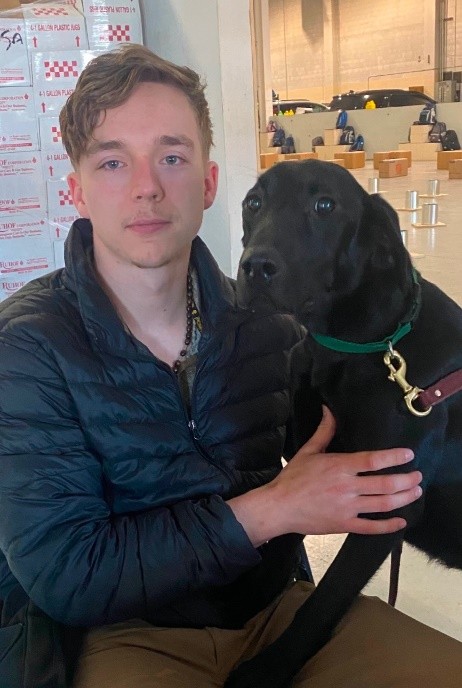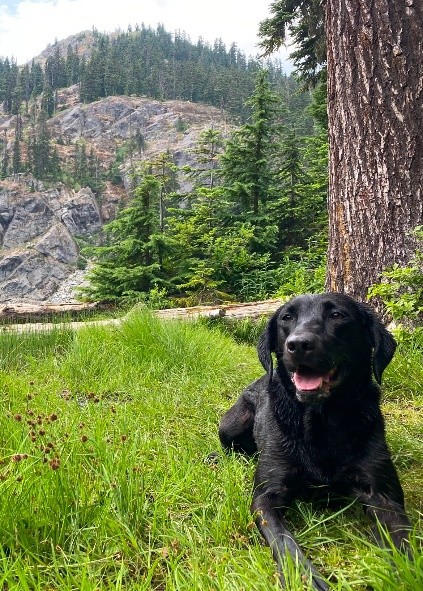
With its towering evergreens, snow-capped peaks and rugged coastline, the Pacific Northwest is known for producing explorers, innovators and standouts who thrive in demanding environments. Among them is Allied Universal® Enhanced Protection Services’ Detection Canine Team Mack Pruitt and Audi.
For Mack, a former Army infantryman who specialized in high-stakes reconnaissance, attention to detail is second nature. "I’ve always believed that success comes down to preparation, precision and partnership," he says. "Audi is proof of that. She’s got an incredible nose, and together we’ve honed a process that keeps us sharp in every search we conduct."
A Nose for the Job
Deployed at an international freight hub, Mack and Audi are among more than 1,000 company teams working nationwide. Certified under the U.S. Transportation Security Administration’s (TSA) Third-Party Canine (3PK9) Program, they screen heavyweight air cargo to help ensure shipments are free from explosive materials. It is a demanding environment, with seemingly endless pallets, ULDs and loose freight to screen daily.
Before every search, Mack performs a visual sweep to pinpoint high-risk areas, using a methodical and efficient approach. From there, the five-year-old black Labrador takes the lead, relying on her keen sense of smell and training to detect any trace of explosive odor. Properly trained canines like Audi can screen cargo up to ten times faster than conventional methods—and their results speak for themselves.
All Allied Universal Detection Teams must meet rigorous certification standards, undergoing continual evaluations by independent third-party assessors to measure proficiency against national and international detection benchmarks. Across the fleet, over 95% of teams pass the North American Police Work Dog Association (NAPWDA) and Department of Justice NORT assessments—validating their ability to perform in high-security, real-world conditions.

From Military to Canine Handling: Full Circle
Mack’s path to canine handling started long before he even realized it. Growing up in Georgia, he was always fascinated by military working dogs, but when it came time to enlist, he followed in his father’s footsteps and became an infantryman. Serving at Joint Base Lewis-McChord with the 7th Infantry Division, he developed a keen sense of observation, discipline and the ability to make quick decisions under pressure—all of which he applies to his work with Audi today. “Things have a funny way of coming full circle,” Mack says. “After I enlisted, I never imagined I’d be working as a handler, but now I couldn’t picture anything else.”
Off the Grid, Off the Clock
When they are not working, Mack and Audi trade high-security work for the quiet solitude of the wilderness. Audi relishes the one-on-one time, sprinting through the trees in a game of hide-and-seek, leaving her work mode behind—at least until Monday rolls around. “I am happy to give her the best of both worlds,” Mack says. “She is a hard-working detection dog on the job and an adventurous trailblazer when we are off the clock. No matter where we are, she really gives it her all.”
Learn how our Canine Detection Services can help your organization prevent threats, ensure safety, and maintain daily operations.









